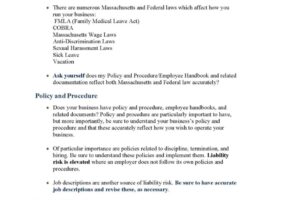
There are many reasons that a business in Massachusetts may decide to operate as a DBA. See below to get an idea as to some of the major reasons for using a DBA:
Strengthen Your Brand
Perhaps you have started your business as an LLC, partnership or corporation in Massachusetts. You may have, and should have by the way, registered this business with the Massachusetts Secretary of State. Whatever name you have given to your business can sometimes lead you to believe that you are limited to operating under that business name only – this is generally not the case. Provided that during business formation you have not limited the purpose of the business to a specific purpose, or if you did make such a limitation, that you have later amended the purpose, your Massachusetts business is actually free to perform any business purpose which is legal in the Commonwealth under most circumstances.
So, if you have a business with, for example, a name like “Joe’s Car Wash” you might be inclined to think that you are limited to perform car wash services only. However, the DBA (doing business as) certificate allows a business owner to perform other services under a different name, while attaching the DBA to the original company. For example, if as the owner of Joe’s Car Wash, I want to serve ice cream, I could file for a DBA in the city in which I wish to do business under the name “Joe’s Ice Cream.” See how this works? From a legal perspective, the fact that Joe’s Car Wash filed a DBA under Joe’s Ice Cream has created a chain which leads back to Joe’s Car Wash while “Joe” is serving ice cream. In this way, if someone needs to locate Joe to serve him legal papers, or pursue him for a debt, or other legal matter, they can simply locate the company associated with Joe’s Ice Cream which would lead them back to Joe’s Car Wash and then determine that company’s registered agent with whom legal paperwork could be filed.
DBA Requirements
Requirements as to whether or not your city, town or county requires a DBA certificate vary widely as some towns will be very strict about such requirements and others not so, or perhaps not at all. As a general rule, it is wise to look into (or contact our office to do so on your behalf) the requirements in your town or city when operating your business under a DBA.
Another liability concern is the type of business structure that you have chosen, or not chosen in some cases. Often, a person operating under a DBA may think that doing so creates some type of additional layer of liability protection…which is not the case. In the end, the structure of your original business (here, Joe’s Car Wash, in our example above) is the determining factor as to how you are protected from liability. Most responsible and forward thinking business owners in Massachusetts have formed their business under an LLC or have incorporated. These well worn structures have established liability protection for those who operate their business under these corporate structures. Keep in mind as well that failure to choose a corporate structure (and to file with the Secretary of State in Massachusetts) results in a default creation of a general partnership or sole proprietorship which offers zero liability protection – meaning, your personal assets are at risk for any lawsuit which involves your company.
DBA Penalties
In the city of Boston, for example, any business operating without a DBA having been filed with the Office of the City Clerk is subject to a fine of $300.00 monthly. That should be a sobering fact for most business owners. It should also be clear that the purpose of a penalty for business’s that fail to file with the City Clerk is to avoid having hundreds of business operating within the city that the city is unaware of. Having tighter control in this regard is a way of protecting the general public from fraudsters and other bad actors.
While not every city or town will have such severe penalties for failing to file a DBA with that city or town, there may be other liability concerns that arise for such failure. Contact our office at 978-273-8337 to learn more about how to protect your business from liability and for your options in operating under a DBA.
DISCLAIMER:
The information provided in the pages and posts of this website are for general informational purposes only. The information presented on this site is not legal advice, and no attorney-client relationship is formed by the use of this site.


